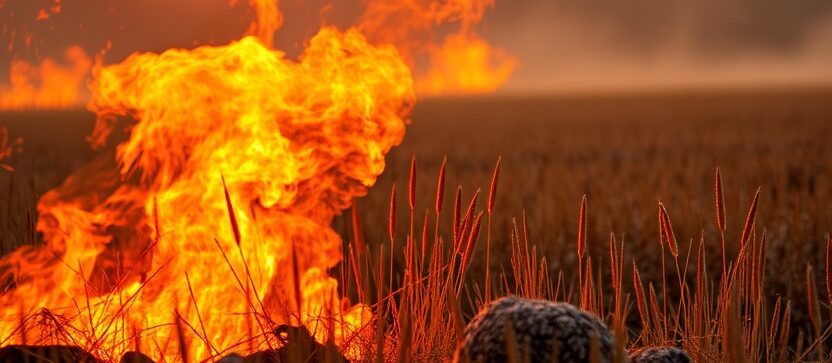- About Us
- Legal Services
- Family Law
- Property
- Marriage
- Immigration
- Contact
- Payments
When there has been a fire you will need to know what is allowed after the fire. The Building Control Act allows us to use the land. See what the rules are after a fire in rural Thailand. You will note the rules post fire as well as the limitations after a fire. Construction in the area is not allowed only temporary housing to accommodate people caught in the fire. These are the rules for a burnt area. Likewise you can also view the rules and powers of the building control act inspectors. There are more rules and laws from the Civil & Commercial Code as well as other statues in Thailand.

When a fire occurs, the local competent officer is responsible for announcing the burnt area. This includes:
Posting a map that delineates the boundaries of the burnt area.
Specifying prohibitions under the Act relevant to the burnt area.
For forty-five days post-fire:
Prohibition on construction: No one may construct, modify, demolish, or relocate buildings in the burnt area.
Individuals with prior permissions to perform such activities must cease work.
Exceptions to this prohibition:
Construction of temporary buildings for public relief managed by authorities.
Necessary modifications or restorations for temporary residence or use.
Violations of this section are subject to the enforcement measures outlined in Sections 40, 42, and 43.
The local competent officer must evaluate if the burnt area should be improved, considering factors such as:
Fire prevention, public health, environmental preservation, urban planning, architecture, and traffic.
Recommendations and a brief map of the burnt area must be submitted to the Building Control Committee (BCC).
If multiple local officers are involved, they must submit a joint recommendation within fifteen days of the fire.
BCC will then relay its opinion to the Minister for a public announcement regarding the potential improvement of the burnt area within forty-five days of the fire.
If it is announced that no improvement will occur, the prohibitions in Section 57 are lifted.
If improvement is to be made:
The prohibitions will remain in force for an additional sixty days following the announcement.
The BCC must prepare an improvement diagram to be submitted to the Minister for official publication in the Government Gazette.
Note the article we wrote on the Thailand construction permit fees as well.
Building Control Act
Building Control Act
Building Control Act
Building Control Act
If an Improvement Notice is issued:
It prohibits any construction, modification, demolition, or relocation contrary to the improvement diagram.
All prior permits and notices that conflict with the improvement diagram are cancelled.
Violations are also subject to the enforcement measures outlined in Sections 40, 42, and 43.
Enforcement must occur within two years with the improvements by the local competent officer.
If land expropriation is needed. Likewise, compensation must be paid. This before improvement begins, following appraisal standards set by the Land Code. This under the Notice of Enforcement of Improvement of Burnt Area.
Lastly if improvements are not started within two years, the Notice will be cancelled.
Land or immovable property needed for the improvement must be expropriated in accordance with expropriation laws.
In areas without a Royal Decree post-fire, the Act applies as if such a decree exists from the fire’s occurrence.
Should be later determined that no improvement will be made, the Royal Decree is deemed cancelled from the announcement date.
Likewise these provisions aim to regulate and manage areas affected by fire. Thus also, ensuring safety, recovery, and compliance with established laws while balancing public interests and environmental considerations.
Lastly also see the articles that we wrote on the construction permit fees in Thailand. Likewise also see the articles on running a factory in Thailand as well as the construction law in Thailand. These are a bundle of laws in the country.
The information contained in our website is for general information purposes only and does not constitute legal advices. For further information, please contact us.
